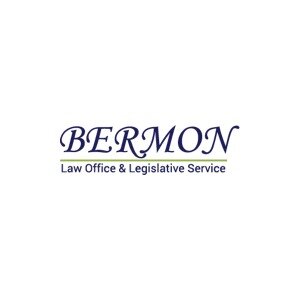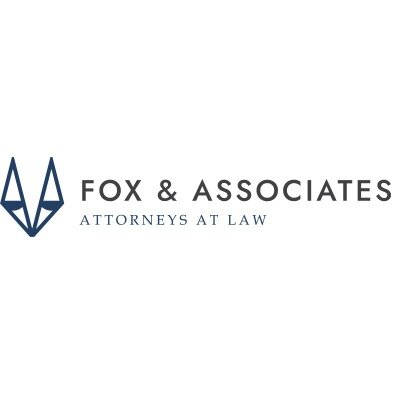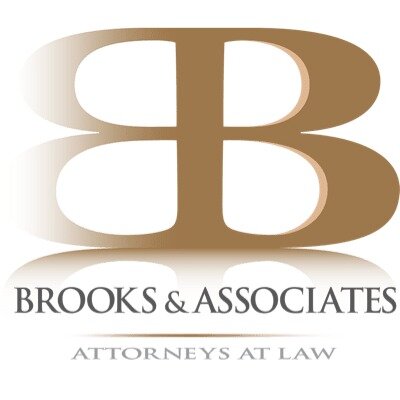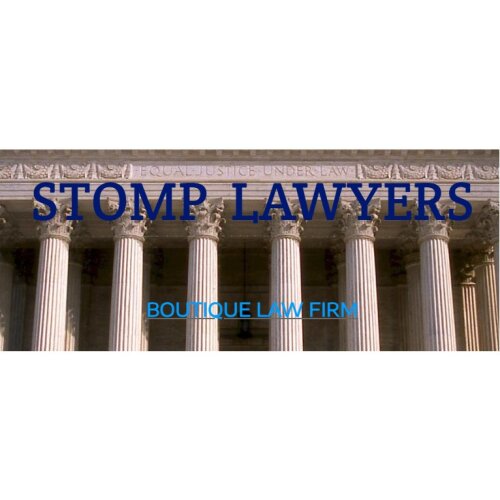Best Energy Regulatory Law Lawyers in Philipsburg
Share your needs with us, get contacted by law firms.
Free. Takes 2 min.
List of the best lawyers in Philipsburg, Sint Maarten
About Energy Regulatory Law in Philipsburg, Sint Maarten
Energy Regulatory Law in Philipsburg, Sint Maarten governs the production, distribution, and consumption of energy on the island. This legal field encompasses various sources of energy, including electricity generation and distribution, fuel importation, renewable energy initiatives, and energy efficiency standards. As a constituent country within the Kingdom of the Netherlands, Sint Maarten has its own legal framework influenced by Dutch law and local ordinances that regulate how energy-related businesses and consumers operate. Regulatory authorities oversee market activities to ensure fair pricing, accessibility, safety standards, and environmental compliance. Energy Regulatory Law ensures the interests of both the public and industry stakeholders are balanced while promoting sustainable development and reliable energy services.
Why You May Need a Lawyer
Dealing with energy matters in Philipsburg can be complex due to local regulations and the involvement of government agencies and utility companies. People may require legal support in situations such as:
- Negotiating or disputing utility contracts for electricity or fuel supply
- Understanding compliance requirements for installing renewable energy systems like solar panels
- Facing enforcement actions or fines for violating energy consumption or safety regulations
- Seeking permits for energy generation, distribution, or import activities
- Resolving disagreements with public utility companies about billing, service reliability, or infrastructure upgrades
- Participating in government tenders or contracts for energy-related projects
- Navigating environmental regulations tied to energy projects, such as emission standards
- Employee or consumer safety claims associated with energy services or infrastructure
- Pursuing claims or compensation for power outages or damages linked to energy supply issues
Legal professionals specializing in this area can help clients understand their rights, meet compliance obligations, and effectively resolve disputes involving regulatory agencies and private parties.
Local Laws Overview
In Philipsburg, Sint Maarten, Energy Regulatory Law is shaped by multiple statutes, ordinances, and regulations. Key aspects include:
- Government Oversight: The utility sector, especially electricity and water supply, is regulated by semi-public companies operating under government oversight. The main local provider is NV GEBE.
- Licensing and Permits: Businesses and individuals planning to generate or distribute energy must obtain the necessary licenses from local authorities.
- Tariff Controls: Energy prices, especially for residential consumers, may be subject to approval and regulation by the government to ensure fairness and prevent abuses of monopoly power.
- Environmental Regulations: Projects involving energy production or significant energy use must comply with local environmental protection laws, including those that address emissions and promote renewable energy adoption.
- Crisis Management: Provisions exist for emergency situations such as natural disasters, prioritizing energy restoration and fair allocation of resources.
- Consumer Rights: Consumer protection laws provide recourse in cases of unfair billing or service interruptions, setting out obligations for disclosure, reasonable service, and dispute resolution.
- Renewable Energy Incentives: The government has expressed support for renewable energy, with evolving policies to encourage solar and wind energy adoption among residents and businesses.
Understanding these rules is essential before entering any contractual agreement or undertaking any energy-related project in Philipsburg.
Frequently Asked Questions
What is the main energy provider in Philipsburg, Sint Maarten?
NV GEBE is the primary provider of electricity and water services in Philipsburg. It operates under local regulatory oversight.
Do I need a permit to install solar panels on my property?
Yes, most renewable energy installations including solar panels require permits from local authorities to ensure safety, proper connection to the grid, and compliance with regulations.
Can utility companies change rates without approval?
No, energy tariffs are typically reviewed and must be approved by relevant governmental agencies. Sudden, unapproved rate hikes are not permitted.
What should I do if I have a billing dispute with the utility company?
Contact the utility company’s customer service for clarification first. If unresolved, you have the right to escalate your complaint to regulatory authorities or seek legal assistance.
Are businesses regulated differently from residential energy consumers?
Yes, commercial and industrial energy consumers may be subject to different tariffs, usage restrictions, and compliance obligations, especially for high-consumption businesses.
Is it legal to generate my own electricity for personal use?
Self-generation is permitted but regulated. You must follow local safety standards, secure appropriate permits, and possibly notify the utility company, especially if you intend to connect to the public grid.
Does Sint Maarten regulate energy efficiency in new buildings?
Energy efficiency standards are evolving, with building codes increasingly incorporating requirements for efficient electrical systems and insulation. Consult local building authorities for current requirements.
What environmental regulations apply to energy projects?
Energy projects must adhere to environmental protection ordinances related to emissions, waste management, and ecosystem impact. Large projects often require environmental impact assessments.
Can foreign companies participate in the local energy market?
Foreign investment is possible, but companies must comply with local licensing laws, partnership requirements, and any foreign ownership restrictions that may apply to certain sectors.
What are my rights during a major power outage?
Utility companies are required to restore service as quickly as possible and follow fair allocation procedures during emergencies. If you suffer damages due to negligence, you may seek compensation through legal channels.
Additional Resources
If you need more information or assistance related to Energy Regulatory Law in Philipsburg, consider reaching out to the following organizations and governmental bodies:
- NV GEBE - The main utility provider for electricity and water
- Ministry of Public Housing, Spatial Planning, Environment, and Infrastructure (VROMI) - Responsible for building permits and environmental regulations
- Chamber of Commerce and Industry St. Maarten - Guidance for businesses entering the energy sector
- Consumer Protection Agencies - Support for consumers with billing or service issues
- Licensed Local Law Firms - Specialized in Energy, Environmental, and Regulatory Law
Always verify the credibility and licensing status of professionals or organizations you consult.
Next Steps
If you require legal assistance with an energy-related issue in Philipsburg, Sint Maarten, take these steps:
- Clearly document your energy-related issue or question, including any correspondence, contracts, or notices received
- Consult the official websites of local authorities, such as GEBE and VROMI, for publicly available guidance
- Reach out to a qualified local lawyer or legal clinic specializing in Energy Regulatory Law to assess your case
- Prepare all relevant documents and questions before your consultation to make the most of your legal advice session
- Follow your lawyer’s advice regarding dispute resolution, compliance measures, or negotiations with regulatory bodies and service providers
Understanding your rights and obligations from the start can help you avoid legal pitfalls and achieve a positive outcome in any energy regulatory matter.
Lawzana helps you find the best lawyers and law firms in Philipsburg through a curated and pre-screened list of qualified legal professionals. Our platform offers rankings and detailed profiles of attorneys and law firms, allowing you to compare based on practice areas, including Energy Regulatory Law, experience, and client feedback.
Each profile includes a description of the firm's areas of practice, client reviews, team members and partners, year of establishment, spoken languages, office locations, contact information, social media presence, and any published articles or resources. Most firms on our platform speak English and are experienced in both local and international legal matters.
Get a quote from top-rated law firms in Philipsburg, Sint Maarten — quickly, securely, and without unnecessary hassle.
Disclaimer:
The information provided on this page is for general informational purposes only and does not constitute legal advice. While we strive to ensure the accuracy and relevance of the content, legal information may change over time, and interpretations of the law can vary. You should always consult with a qualified legal professional for advice specific to your situation.
We disclaim all liability for actions taken or not taken based on the content of this page. If you believe any information is incorrect or outdated, please contact us, and we will review and update it where appropriate.












